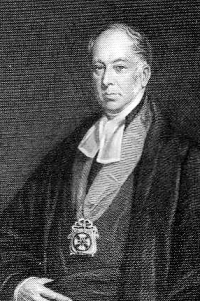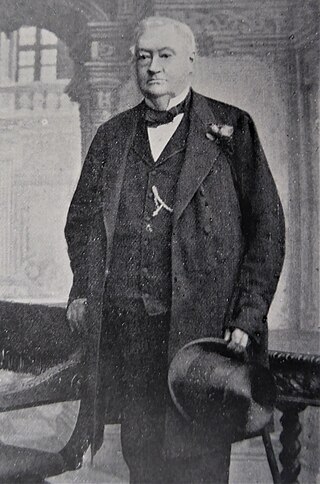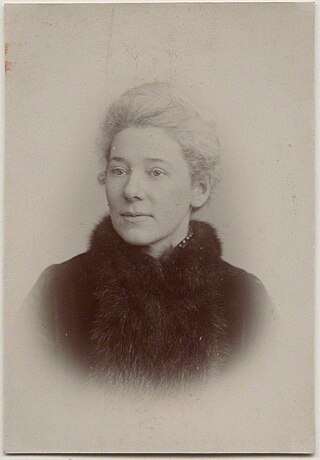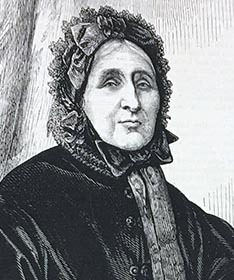1840s and 1850s
The Lancashire Public Schools Association (LPSA) was founded in 1847, by a group of seven including Alexander Ireland and Samuel Lucas, drawing heavily on Anti-Corn Law League activists; and was dominated by Unitarians. [5] [6] [7] A setpiece debate between William McKerrow and George Osborn on 28 March 1849 in Manchester saw the amendment by Osborn and Hugh Stowell to an Association petition, to ensure a Christian education, carried by a small margin. [8]
In 1850 the LPSA became the National Public Schools Association (NPSA). [5] During the 1850s it campaigned for an education system that was secular or non-sectarian, having financial support from local rates and under political control. [9]
Richard Cobden and William Johnson Fox were national leaders of the NPSA, and the educational system of Massachusetts taken as a model. [6] In the mid-1850s, a number of education bills were introduced in parliament, one drafted for the NPSA originating in 1855 with Cobden, Thomas Milner Gibson and Thomas Emerson Headlam. Nothing came of them. [10] At the local level, John Watts in 1852 there was common ground for the NPSA and campaigners against the "taxes on knowledge". [11]

Nonconformists were Protestant Christians who did not "conform" to the governance and usages of the state church in England, and in Wales until 1914, the Church of England.

Richard Whately was an English academic, rhetorician, logician, philosopher, economist, and theologian who also served as a reforming Church of Ireland Archbishop of Dublin. He was a leading Broad Churchman, a prolific and combative author over a wide range of topics, a flamboyant character, and one of the first reviewers to recognise the talents of Jane Austen.

The Anti–Corn Law League was a successful political movement in Great Britain aimed at the abolition of the unpopular Corn Laws, which protected landowners’ interests by levying taxes on imported wheat, thus raising the price of bread at a time when factory-owners were trying to cut wages. The League was a middle-class nationwide organisation that held many well-attended rallies on the premise that a crusade was needed to convince parliament to repeal the corn laws. Its long-term goals included the removal of feudal privileges, which it denounced as impeding progress, lowering economic well-being, and restricting freedom. The League played little role in the final act in 1846, when Sir Robert Peel led the successful battle for repeal. However, its experience provided a model that was widely adopted in Britain and other democratic nations to demonstrate the organisation of a political pressure group with the popular base.

Joseph Lancaster was an English Quaker and public education innovator. He developed, and propagated on the grounds both of economy and efficacy, a monitorial system of primary education. In the first decades of the 19th century his ideas found application in new schools established in growing industrial centres.

The British and Foreign School Society (BFSS) offers charitable aid to educational projects in the UK and around the world by funding schools, other charities and educational bodies. It was significant in the history of education in England, supporting free British Schools and teacher training in the 19th century; it continued in the latter role until the 1970s. In the 19th century it fiercely competed with the National Society for Promoting Religious Education, which had the support of the established Church of England, the local parishes, and Oxford and Cambridge universities. Both institutions promoted the monitorial system, whereby few paid teachers supervise the senior students who in turn taught the younger students.

The Elementary Education Act 1870, commonly known as Forster's Education Act, set the framework for schooling of all children between the ages of 5 and 12 in England and Wales. It established local education authorities with defined powers, authorized public money to improve existing schools, and tried to frame conditions attached to this aid so as to earn the goodwill of managers. It has long been seen as a milestone in educational development, but recent commentators have stressed that it brought neither free nor compulsory education, and its importance has thus tended to be diminished rather than increased.
The National Education League was a political movement in England and Wales which promoted elementary education for all children, free from religious control. It was founded in 1869 and dissolved in 1877. It developed from the Birmingham Education League, co-founded in 1867 by George Dixon, a Birmingham Member of Parliament (MP) and past mayor, Joseph Chamberlain, a nonconformist and future mayor of Birmingham, and Jesse Collings, but was expanded to include branches from all over England and Wales. Dixon was chairman of the League's council, Chamberlain chairman of the executive committee, and Collings the honorary secretary. Other leading founding members were R. W. Dale, A. Follett Osler, J. H. Chamberlain, George Dawson, and William Harris. Twenty founding members subscribed £14,000. The first general meeting was in October 1869, by which time William Dronfield of Sheffield was acting as Secretary. It resolved that a bill should be prepared to present to Parliament at the next session.

School boards were ad hoc public bodies in England and Wales between 1870 and 1902, which established and administered elementary schools.

George Dixon was an English Liberal Party then Liberal Unionist politician who was active in local government in Birmingham and sat in the House of Commons in two periods between 1867 and 1898. He was a major proponent of education for all children.

Thomas Bayley Potter DL, JP was an English merchant in Manchester and Liberal Party politician.
The history of education in England is documented from Saxon settlement of England, and the setting up of the first cathedral schools in 597 and 604.

Emma Jane Catherine Cobden was a British Liberal politician who was active in many radical causes. A daughter of the Victorian reformer and statesman Richard Cobden, she was an early proponent of women's rights, and was one of two women elected to the inaugural London County Council in 1889. Her election was controversial; legal challenges to her eligibility hampered and eventually prevented her from serving as a councillor.
James Shergold Boone (1799–1859) was an English cleric and writer.

Scottish education in the nineteenth century concerns all forms of education, including schools, universities and informal instruction, in Scotland in the nineteenth century. By the late seventeenth century there was a largely complete system of parish schools, but it was undermined by the Industrial Revolution and rapid urbanisation. The Church of Scotland, the Free Church of Scotland and the Catholic church embarked on programmes of school building to fill in the gaps in provision, creating a fragmented system. Attempts to supplement the parish system included Sunday schools, mission schools, ragged schools, Bible societies and improvement classes. Scots played a major part in the development of teacher education with figures including William Watson, Thomas Guthrie, Andrew Bell, John Wood and David Stow. Scottish schoolmasters gained a reputation for strictness and frequent use of the tawse. The perceived problems and fragmentation of the Scottish school system led to a process of secularisation, as the state took increasing control. The Education (Scotland) Act 1872 transferred the Kirk and Free Kirk schools to regional School Boards and made some provision for secondary education. In 1890 school fees were abolished, creating a state-funded, national system of compulsory free basic education with common examinations.

The history of popular religion in Scotland includes all forms of the formal theology and structures of institutional religion, between the earliest times of human occupation of what is now Scotland and the present day. Very little is known about religion in Scotland before the arrival of Christianity. It is generally presumed to have resembled Celtic polytheism and there is evidence of the worship of spirits and wells. The Christianisation of Scotland was carried out by Irish-Scots missionaries and to a lesser extent those from Rome and England, from the sixth century. Elements of paganism survived into the Christian era. The earliest evidence of religious practice is heavily biased toward monastic life. Priests carried out baptisms, masses and burials, prayed for the dead and offered sermons. The church dictated moral and legal matters and impinged on other elements of everyday life through its rules on fasting, diet, the slaughter of animals and rules on purity and ritual cleansing. One of the main features of Medieval Scotland was the Cult of Saints, with shrines devoted to local and national figures, including St Andrew, and the establishment of pilgrimage routes. Scots also played a major role in the Crusades. Historians have discerned a decline of monastic life in the late medieval period. In contrast, the burghs saw the flourishing of mendicant orders of friars in the later fifteenth century. As the doctrine of Purgatory gained importance the number of chapelries, priests and masses for the dead within parish churches grew rapidly. New "international" cults of devotion connected with Jesus and the Virgin Mary began to reach Scotland in the fifteenth century. Heresy, in the form of Lollardry, began to reach Scotland from England and Bohemia in the early fifteenth century, but did not achieve a significant following.
John Watts (1818–1887) was an English educational and social reformer. Originally an Owenite, whose economic writings affected the views of Friedrich Engels, he moved to a position more in favour of capital. In later life he had a multiplicity of interests and undertook many social projects.
The Manchester Examiner was a newspaper based in Manchester, England, that was founded around 1845–1846. Initially intended as an organ to promote the idea of Manchester Liberalism, a decline in its later years led to a takeover by a group who intended to use it to promote Liberal Unionism without actually being directly associated with the Liberal Unionist Party (LUP). That scheme soon failed due to severe financial problems, leading the LUP to take control of the newspaper for a brief period just before the 1892 general election campaign. It was then sold at a significant loss to a competitor, who also owned the Manchester Courier. The last edition was published in 1894 before it was absorbed by the Empire News.
William McKerrow was a Scottish minister of the Presbyterian Church of England who had a particular interest in education. He lived for most of his life in Manchester, England, where he immersed himself in the radical politics prevalent there at the time.
James Bardsley (1805–1886) was an English cleric of evangelical views.

Catherine Smithies was an English philanthropist and campaigner for animal welfare, abolitionism and temperance. She was the creator of the first Band of Mercy, which promoted teaching children kindness towards non-human animals and led to the Bands of Mercy movement.












